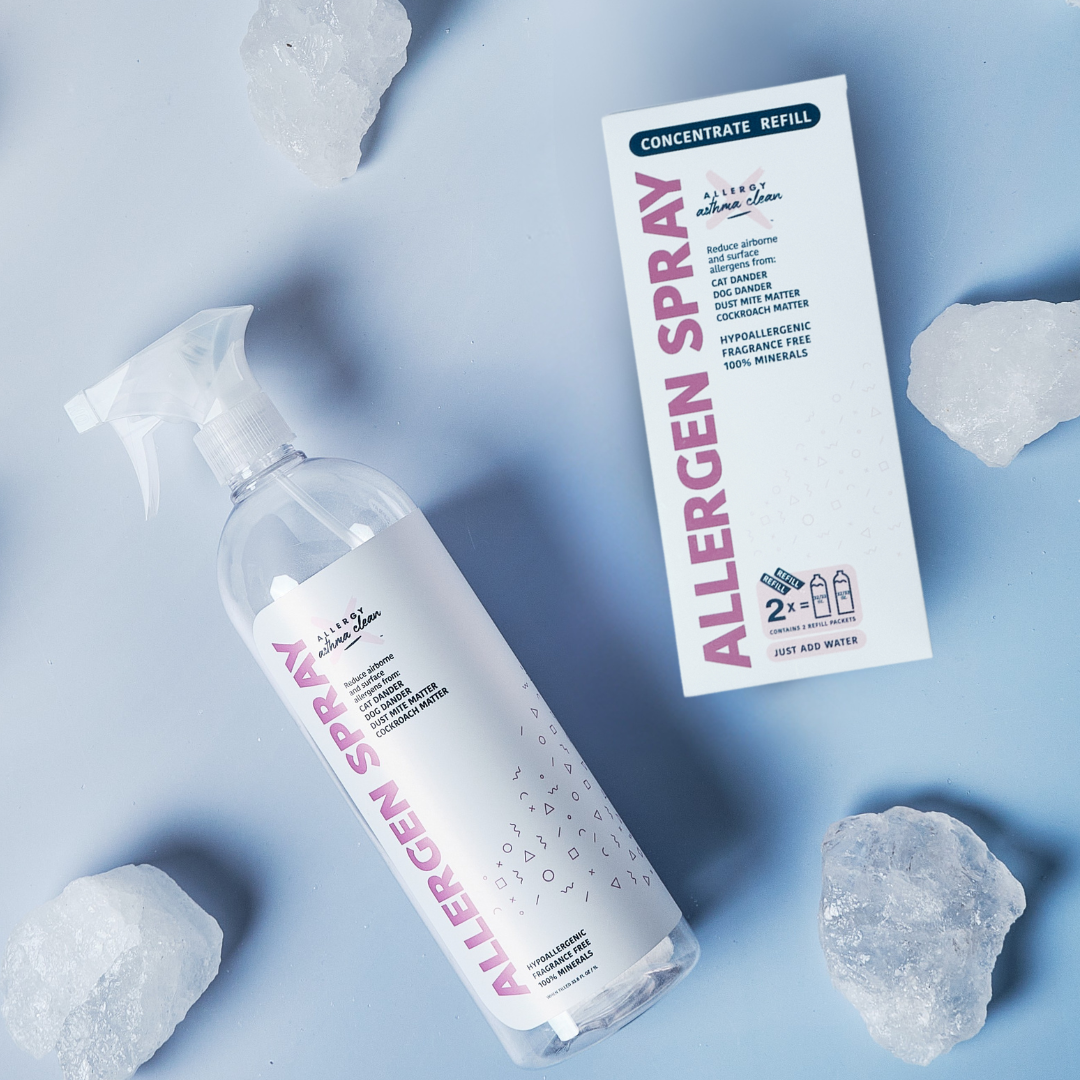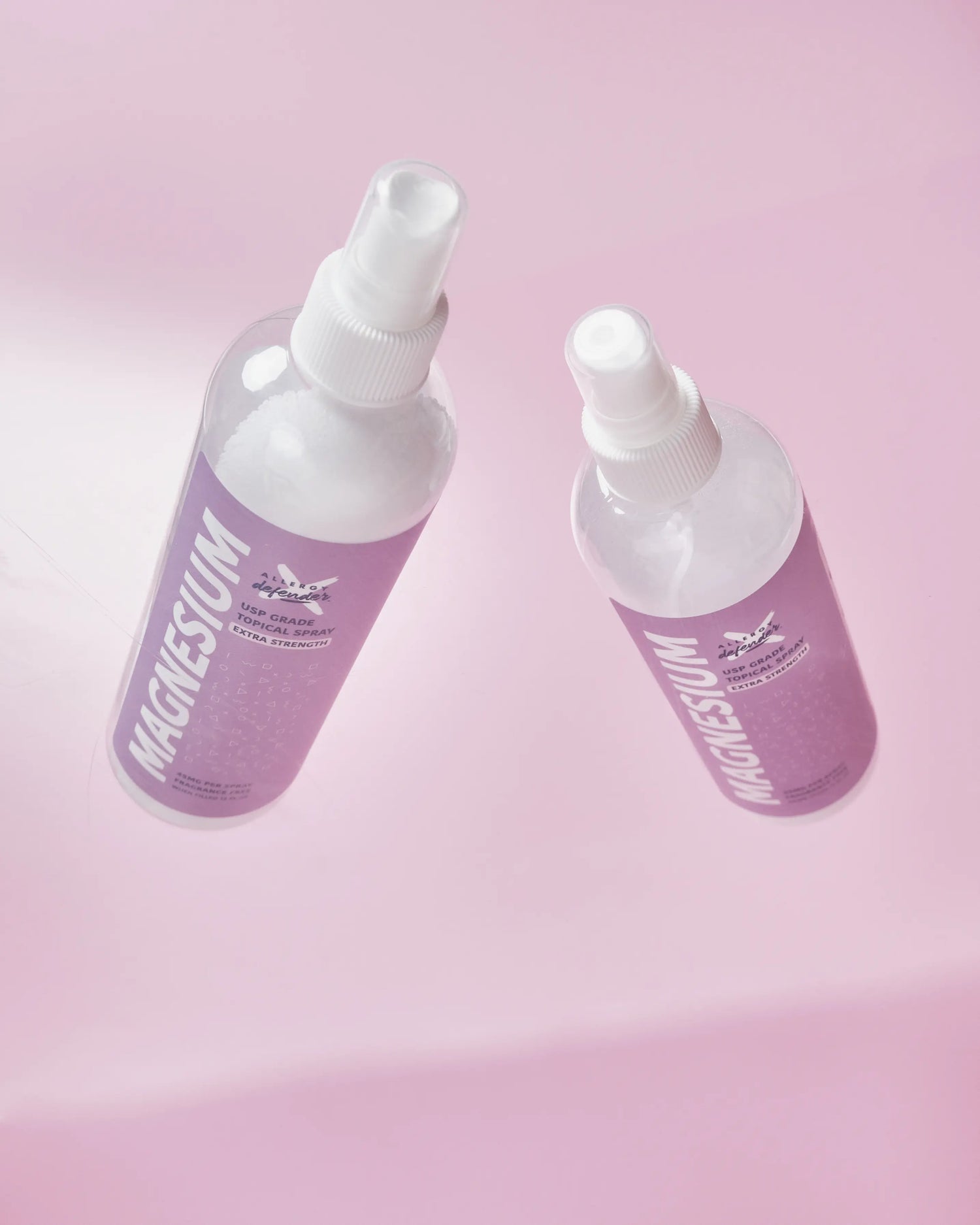Fragrances are everywhere—from perfumes and candles to soaps and cleaning products—but many contain synthetic chemicals that can harm your health. These fragrance ingredients, often made from volatile organic compounds (VOCs), are linked to allergies, asthma, hormone disruption, and even cancer. What seems like a pleasant scent can actually contribute to headaches, skin irritation, and long-term respiratory problems. Understanding the hidden dangers in fragranced products can help you make safer, fragrance-free choices for a cleaner, healthier home.
Key Takeaways
- Fragrance chemicals found in home, personal care, and cleaning products can cause allergic reactions, hormone imbalance, and respiratory irritation.
- Synthetic fragrances are made with VOCs, which are linked to asthma, eczema, migraines, and even certain cancers.
- Fragrance sensitivities are common, affecting nearly 20% of people, and may cause symptoms ranging from headaches to breathing problems.
- Everyday items—like detergents, air fresheners, and skincare products—often contain multiple hidden fragrance chemicals, sometimes dozens in a single product.
- Choosing fragrance-free and naturally derived products helps reduce exposure to allergens and toxins, supporting better indoor air quality and overall wellness.
Hidden Dangers in Your Scented Products
Fragrances are often associated with pleasant scents that make our homes and personal care products smell delightful, but many of the chemicals used to create these fragrances can pose serious health risks. From allergic reactions to hormone disruption, the hidden dangers in fragranced products are more common than most people realize. While we may assume that fragrances are harmless, studies have shown that synthetic chemicals in fragrances can trigger a range of health issues, including asthma, cancer, and reproductive toxicity.
A young woman I know washed her hands in the restroom of a car dealership. The scent of the hand soap was so overwhelming that she suffered an instant headache.
Once home, she washed her hands at least 20 times to remove the odor. Why do companies think we all want scents in our lives?
Pro tip: Fragrances can cause allergic reactions, just like pet dander can cause allergy symptoms.

Try this mind-blowing experience on for size; check out this partial list of products that contain fragrances.
-
Products for use in and around the home
HVAC air filters
scented candles
dish soap
dishwasher detergent
clothes soap
dryer sheets
air fresheners
kitty litter
litter box liners
puppy and dog pads
flea shampoo
trash bags
bleach
steel wool pads for cleaning dishes
dusters
furniture polishes/cleaners
wet mopping cloths
disinfectant sprays
counter top cleaner
hard surface cleaners
toilet bowl cleaners
bathtub and sink cleaners
mildew and mold stain removers
vegetable washes
-
Personal care products
deodorant
body soap
hand soap
shampoo
conditioner
moisturizers
diaper liners for diaper pails
flushable personal wipes
aftershave
shaving cream
hair spray
hair gel
sunscreen
insect repellent
hand sanitizing spray
hand sanitizing wipes
razor blades
makeup
skincare
Children's products
clay
plush animals
sensory, squishy toys
stuffed pillows
pencils
stickers
silly putty
baby dolls
markers
bubble bath
Baby products
baby powder
oil
wipes
lotion
bath soap
diapers

Is it a problem?
What's a little harm in inhaling a few fragrances?
It's estimated there are over 10,000 different fragrances in use today. The problem lies in the chemicals used to create fragrances. They are considered volatile organic compounds (VOCs), linked to various health issues. These chemicals can be inhaled, absorbed through the skin, or ingested. They can then enter the bloodstream and be distributed throughout the body, where they can cause a variety of health problems. These chemicals have been linked to birth defects, allergies, nerve damage, and cancer.
Reactions to fragrances are quite common among individuals. A variety of adverse reactions have been reported, including skin, respiratory, neurological, and nasal symptoms. Respiratory difficulties, such as coughing and shortness of breath, are among the most commonly reported reactions. Studies have indicated that approximately 17% and 55.3% of participants experienced respiratory issues in separate investigations. Additionally, various other respiratory effects have been reported, including mucosal symptoms, migraines, skin problems, and asthma attacks, with prevalence rates ranging from 7.6% to 14%.
It is not solely limited to respiratory symptoms as individuals have also reported gastrointestinal problems, neurological symptoms, and cognitive difficulties.
Moreover, fragrance sensitivities can be associated with multiple chemical sensitivities (MCS), where exposure to different chemical products can result in similar adverse reactions. Notably, almost 20% of people have reported being sensitive to fragrances, suggesting that it is relatively common in the population.


Short-term problems from fragrances
Short-term symptoms may include headaches, dizziness, nausea, respiratory issues, and skin irritation. Some people may also be allergic to certain fragrances, and exposure can trigger asthma attacks or other severe health reactions.
Serious long-term issues
Some fragrances contain harmful toxins that can damage the liver, kidneys, and central nervous system.
Hormone disruption
What many people don't realize is that fragrances can have a significant impact on our hormone levels. Studies have shown that certain fragrances can disrupt the body's natural hormone balance, causing various problems, including reproductive and thyroid problems. For example, endocrine-disrupting phthalates can interfere with the body's hormones and have been linked to early puberty in girls and decreased sperm count in boys. As a result, the European Union has banned certain fragrances in cosmetics because they could cause hormone disruption.
Potential cancer risk
The International Agency for Research on Cancer (IARC) is the cancer research arm of the World Health Organization (WHO). IARC studies different agents to determine if they are carcinogenic or cancer-causing. For example, the IARC has classified several fragrance ingredients as possibly carcinogenic to humans. These ingredients are found in various products, including perfumes, colognes, air fresheners, and laundry detergents. Studies have shown that exposure to these chemicals can increase the risk of certain types of cancer, such as leukemia and non-Hodgkin lymphoma.
A few fragrance ingredients that have cancer-causing potential are musk xylene 2. Other cancer-causing chemicals found in fragrance products include diethyl phthalate, Ethylhexyl methoxycinnamate 3, and benzophenone. 4
Styrene is also a potentially cancer-causing ingredient. It's a compound used in producing plastics, rubber, and insulation. It is also a common ingredient in fragrances. Although styrene is considered safe when used in small amounts, it has been classified as a possible human carcinogen again by IARC. In animal studies, exposure to styrene has been linked to an increased risk of cancer in the blood and lymphatic system. Styrene can also cause damage to the liver, kidney, and nervous system. 5
Gut health
One woman in my community had an infant boy who was hospitalized. After arriving home with the newborn, she scoured her house and promptly threw out her plug-in air fresheners; why? Because fragrances could harm the baby's gut health and immune system.
The gut is home to a complex and diverse ecosystem of microbes essential for gut health. However, outside factors, including synthetic fragrances, can easily disrupt this delicate balance. When these fragrances are released into the environment, they can be inhaled or absorbed through the skin. Once they reach the gut, they can alter gut microbiota composition, leading to gut dysbiosis. This can lead to several health problems, including gastrointestinal distress, fatigue, skin problems, immune system dysfunction, and even depression. Therefore, it is essential to be aware of fragrances' potential gut health risks.
Eczema
The skin is the largest organ in the human body and plays a vital role in protecting us from the outside world. However, the skin is also susceptible and can be easily irritated by harsh chemicals and fragrances. This can be a significant problem for people with skin conditions like eczema. Did you know fragrance ingredients are one of the most common causes of eczema flare-ups? Eczema is a condition that causes the skin to become red, itchy, and inflamed, and it can be extremely painful and uncomfortable. Chemicals in fragrances can trigger flare-ups and make existing symptoms worse. In some cases, they can even cause new skin problems to develop. Once, our washer was on the fritz, so I trekked to the laundromat. I noticed they only had fragrance-free laundry soap. So I asked the proprietor why and he said people doing their laundry always request fragrance-free brands because other soaps bother their skin. So obviously, for people with sensitive skin, it's essential to avoid products that contain fragrances.
Psoriasis
Psoriasis is a common skin condition that affects millions of people worldwide. While there is no cure for psoriasis, there are treatments that can help to lessen the symptoms. However, one potential trigger for psoriasis flare-ups is fragrances. Many perfumes, colognes, and other scented products contain chemicals that can irritate the skin, making psoriasis worse. In addition, fragrances can also trigger headaches and migraines in some people.

Perhaps This App Could Make Short Order of Product Ingredients
Have you heard of SmartLabel? It's an app designed to help consumers decipher the ingredients of everyday household products. Food such as bread and veggies, cleaning products, and more are found on the site. Nutrition, allergens, and info about the company are also included on the site.
Just for fun, I looked at a lavender-scented multi-purpose cleaner found in grocery stores, and it had a whopping 28 different ingredients in its fragrance! This doesn't include the rest of the ingredients. And a seasonal plug-in's fragrance ingredients contained 38. (The NCBI wasn't kidding when they mentioned fragrances could have several dozen chemicals in one fragrance.) While we applaud the effort, some chemicals are not easy to pronounce or determine what harm they could do to your body. You'd have to be a research scientist to determine what the chemicals do. The maze of understanding each chemical ingredient in fragrance products is frustrating and so time-consuming the average user would throw in the towel.
Is there a difference between fragrances and scents?
When it comes to household products, fragrances and scents are often used interchangeably. However, there is a significant difference between the two. Fragrances are created artificially using a combination of chemicals. On the other hand, scents are derived from natural sources, such as essential oils. As a result, fragrances can be much stronger than scents.
The choice is yours
Overall, the health risks of fragrances are significant and should not be ignored. Be cautious when choosing fragrance products, and avoid products that contain cancer-causing chemicals.
Why did we include a fragrance-free article on our website? We produce an allergen spray product, after all. Allergy Defender's Allergen Spray is fragrance and scent free for good reason. Good health is essential.
And the female with the smelly hands? Even after so many washings, the odor lingered.
1https://www.ncbi.nlm.nih.gov/pmc/articles/PMC5093181/
2https://ec.europa.eu/health/ph_risk/committees/sccp/documents/out280_en.pdf
3https://usercontent.one/wp/www.erasealltoxins.org/wp-content/uploads/2021/12/whats-that-smell.pdf
4https://www.p65warnings.ca.gov/sites/default/files/downloads/factsheets/benzophenone_fact_sheet.pdf
5 https://www.ewg.org/news-insights/news/expert-panel-confirms-fragrance-ingredient-can-cause-cancer










